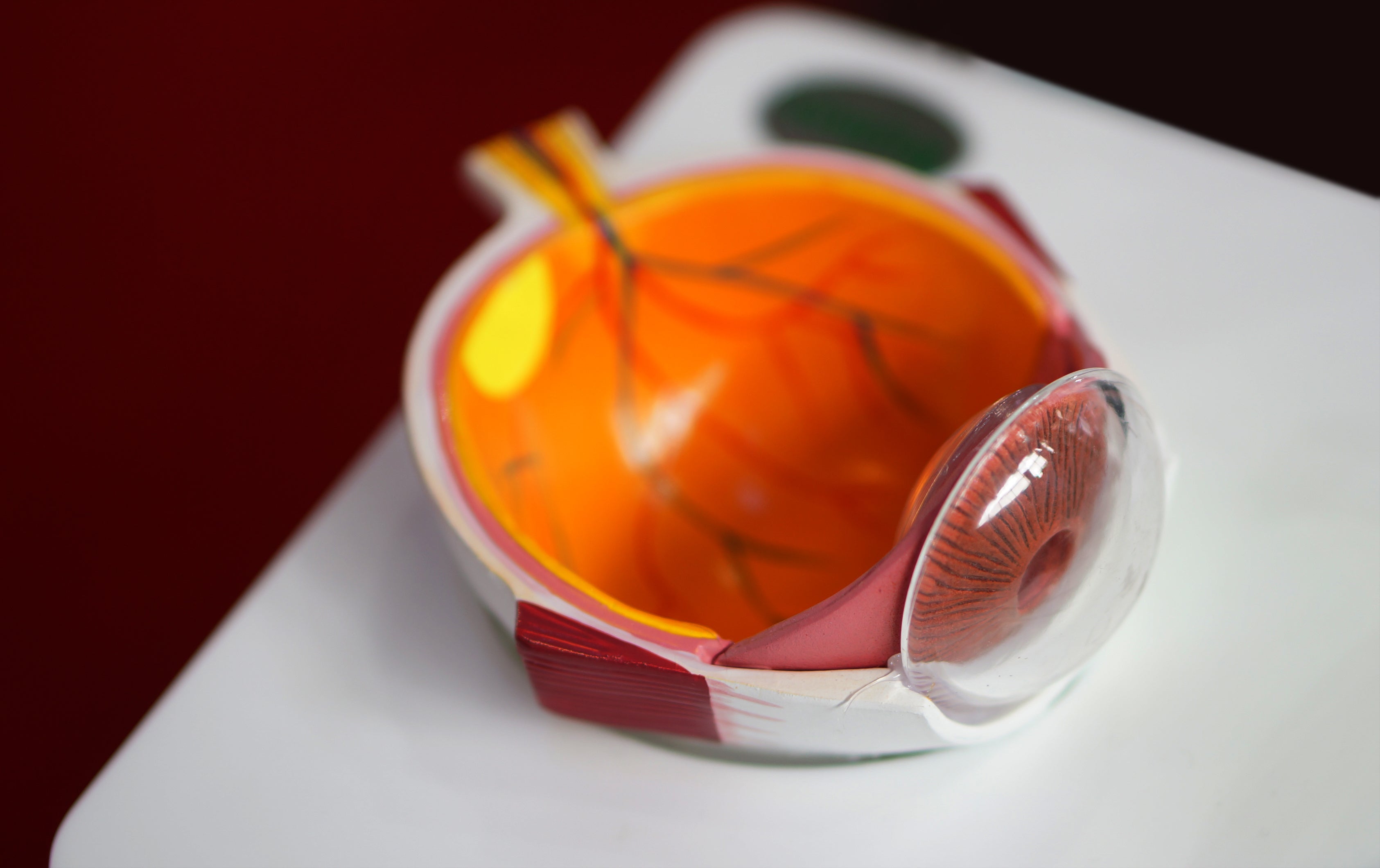
Age-Related Macular Degeneration (AMD): Causes, Symptoms, and Treatment
Macular Degeneration is the leading cause of blindness in the United States. Identifying Macular Degeneration at its earliest stages and aggressively addressing it can dramatically impact our long-term vision.
What is Macular Degeneration?
Macular Degeneration occurs when the center portion of our retina (macula) starts to wear down. The macula is the part of our eye that records images and sends them to our brain to understand. When this part of the eye starts to lose its ability to process images, people will experience trouble focusing on things in the center part of our vision. This can lead to trouble reading, driving, recognizing faces, or just simply seeing things at their fullest detail.
There are many risk factors that impact our chances of developing Macular Degeneration. Age and family history along with exposure to harmful blue light are factors. Pigment levels in our macula are also associated with Macular Degeneration. Genetic testing is available to assess one's genetic predisposition for Macular Degeneration.
There are two types of AMD: wet and dry.
The earliest stages of Macular Degeneration are not visible because they occur below the surface of the retina. Dark Adaptation testing can help your eye doctor discover these early changes if they are occuring. Preventive care is important in Macular Degeneration and can have a dramatic impact on your vision long term.
Frequently asked questions
Macular degeneration can be a scary disease. To understand what Macular Degeneration is, we’ve answered a few of the most common questions from our patients:
What foods should be avoided with Macular Degeneration?
You should avoid foods that clog blood vessels in the heart. This includes:
- Palm and coconut oil
- Saturated fats
- Lard and vegetable shortening
- Margarine
- High-fat dairy foods
- Fatty beef, pork, and lamb
How long does it take to lose vision with Macular Degeneration?
Loss of vision from Macular Degeneration can vary greatly depending on the person and their treatment plan. Macular degeneration can be very aggressive or it can take many years to progress.
What are the early signs of Macular Degeneration?
The earliest symptom of Macular Degeneration is reduced night vision. Blurred vision and dark spots are also two early symptoms of Macular Degeneration. Your optometrist may be able to see warnings before you do and with dark adaptation testing may be able to detect Macular Degeneration at its very earliest stages.
Can Macular Degeneration cause blindness?
Most patients do not go fully blind with Macular Degeneration, but they will be considered legally blind if the wet form of Macular Degeneration reduces their central vision below 20/20. Macular Degeneration is the leading cause of legal blindness in the United States.
Macular degeneration causes
Unfortunately, no one is sure what causes Macular Degeneration. Research has shown that there are a few risk factors associated with this disease that people should be aware of, including:
- Diets full of high saturated fat
- Smoking cigarettes
- Aging (50+)
- High blood pressure
- Family history of AMD
- Heart disease/high cholesterol
- Macular Pigment Optical Density levels
Race also plays a role in this disease. Caucasians have an elevated risk of developing Macular Degeneration, although it’s unclear why.
Macular degeneration symptoms
There are three stages of age-related Macular Degeneration (AMD), each of which come with their own symptoms. It is vital to note that an eye doctor will typically see signs of Macular Degeneration before you will, which is why it’s crucial to undergo yearly eye exams!
Early AMD and Sub-Clinical AMD
During this stage, most people don’t experience any type of vision loss but may experience decreased night vision. Dark Adaptation testing can detect the earliest changes in the macular. When doctors see yellow deposits (called drusen) beneath the retina during a yearly eye exam they will classify the size and number of the drusen to determine the level of disease.
Intermediate AMD
You may start to experience some vision loss at this stage, like the distortion of straight lines. Your doctor will look for pigment changes or other more significant deposits through specific tests to see if you have AMD.
Late AMD
This is when vision loss has become noticeable. The macula is right in the middle of our eye, so AMD symptoms include very poor vision in the center of our sight. In some rare cases, you may start to see colors differently as well.
Macular degeneration treatments
Early diagnosis and intervention can help prevent or slow Macular Degeneration. Studies using carotenoids and other supplements have been shown to slow progression. The number one modifiable risk for Macular Degeneration is smoking. The Eye Doctors in our network are focused on giving you the best plan to preserve your vision as best we can.
We offer Macular Degeneration supplements to help protect the macula. These supplements have been shown in studies to have many other benefits to our visual performance as well as our cognitive function.
If you want support navigating the Macular Degeneration process, contact our team today.
